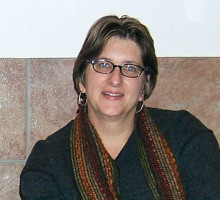
Reviews
Any collection strong in genetic health will find this a winner.
This book is an example of the best that history of science has to offer. Well written and exhaustively referenced, the work should be required reading for all students and faculty interested in modern medicine.
A fascinating study of the development of the concept and practice of genetic counseling in the United States since the early years of the twentieth century... Telling Genes is a very important contribution to the history of medical genetics and its clinical applications in the twentieth century.
In this well written and important book, Stern addresses the history of genetic counseling, a profession that has undergone drastic changes during its short history, while still remaining under the ‘shadow of eugenics'.
Stern has once again demonstrated her uncommon ability to present complex information in an accessible form.
Genetic counselors likely all learn something about the history of our profession during graduate school. For those desiring to know more about our profession's origins and swift evolution, we now have Telling Genes... Telling Genes will appeal to more than just the history fanatics in our profession and is a perfect supplementary text for genetic counseling students.
A worthy standard by which other historical writing and claims about the field and practice of genetic counseling can be read.
Telling Genes is an informative read for anyone interested in learning about the historical origins and growth of genetic counseling, the profession's important contributions to American medical care, and the ethical dilemmas that it must confront in the future.
Stern's impressively researched history of genetics practices in the United States... exposes the multifarious ways in which these practices have incorporated and promoted societal values.
In this very readable exploration of the origins of genetic counseling, Alexandra Minna Stern makes an important contribution both to our understanding of the history of American medicine and also to the histories of eugenics and medical genetics. Using an accessible narrative style, Stern knits together archival materials, oral histories with key figures, medical publications, and photographs.
Stern's beautifully nuanced analysis illuminates the legacies and challenges of a profession on the front lines of genomic medicine. This groundbreaking book respects the voices of practitioners, clients, and critics alike and is essential reading for anyone with a problematic genetic inheritance—which is all of us.
The best and most complete exploration of the history of genetic counseling to date. Stern’s masterful account includes a lucid analysis of incendiary debates involving race, disability, and abortion that have surrounded the field of genetic counseling and deftly navigates the troubled historical waters between genetics and eugenics.
Alexandra Stern has written a rich and thorough history of the development of genetic counseling as a profession. It will be widely received as a definitive work that captures and explains some of the inherent tensions in the role of the genetic counselor, with a critical but engagingly sympathetic analysis.
Book Details
Acknowledgments
Introduction
1. History: Genetic Counseling Develops
2. Genetic Risk: An Evolving Calculus
3. Race: Tense and Troubled Relations
4. Disability: The Dynamics of Difference
5. Women
Acknowledgments
Introduction
1. History: Genetic Counseling Develops
2. Genetic Risk: An Evolving Calculus
3. Race: Tense and Troubled Relations
4. Disability: The Dynamics of Difference
5. Women: Transforming Genetic Counseling
6. Ethics: Shades of Gray in Genetic Counseling
7. Prenatal Diagnosis: The Handmaiden of Contemporary Genetic Counseling
Conclusion
Appendixes
A. Archival Materials Consulted
B. Interviewees
C. Master's Degree Genetic Counseling Programs in North America
Notes
Index






